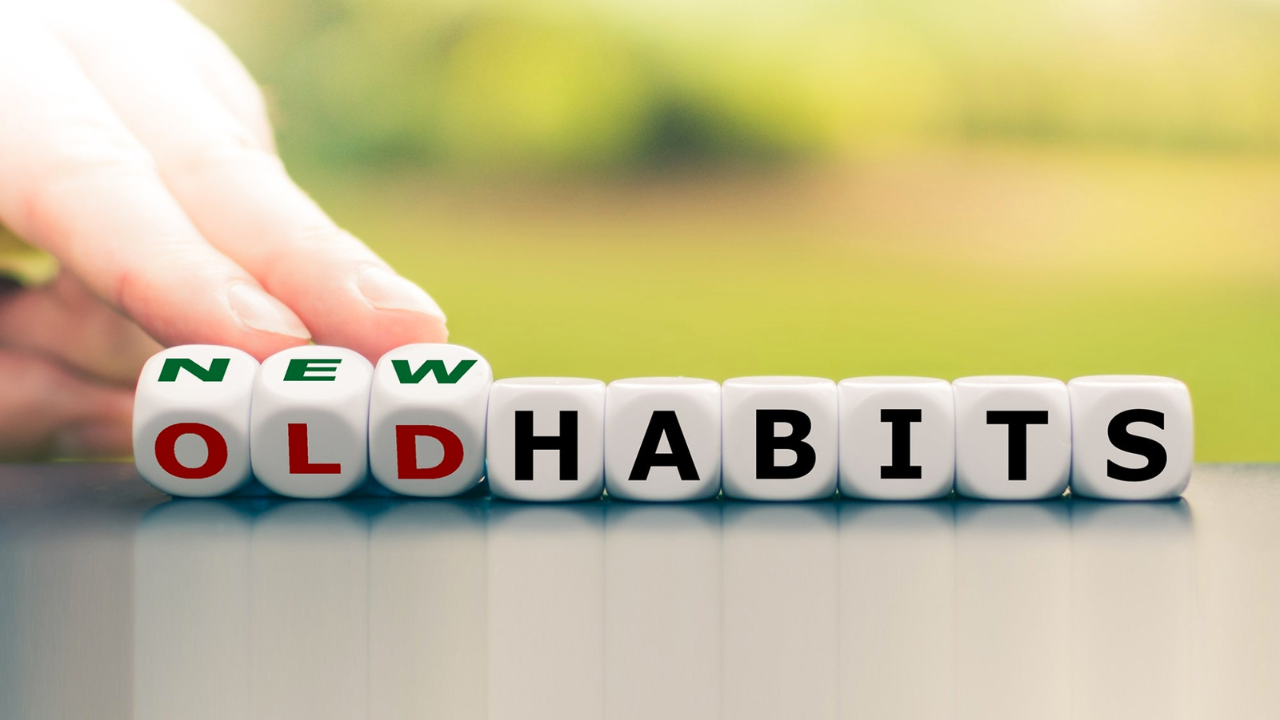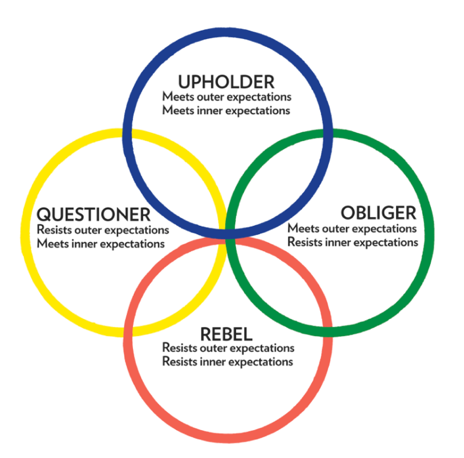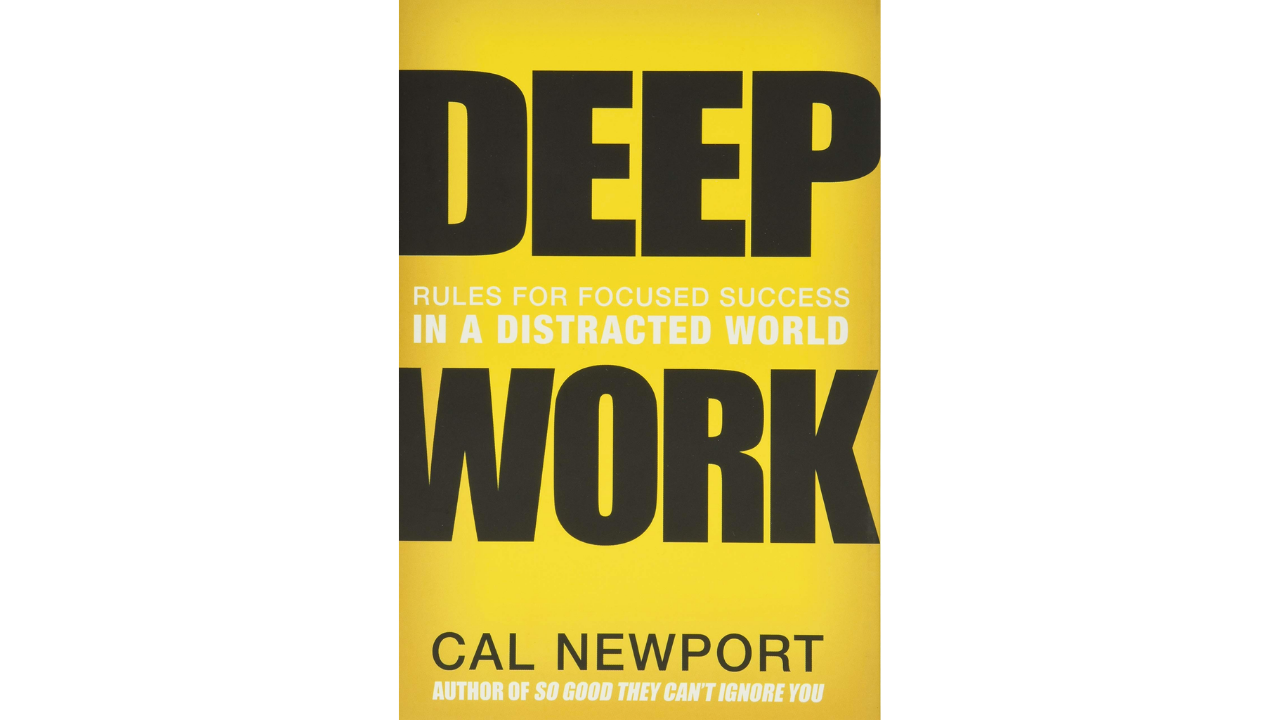
I’m forever on the quest to build better habits. Habits are the invisible architecture of daily life; about 40% of daily life is shaped by habits. If you want to change your future, change your habits. The importance of habits has led me to study several books on the topic.
Let’s review the anatomy of a habit:
Habit = Cue (aka anchor or trigger) + Routine (behavior) + Reward (celebration)
Unfortunately, optimizing habits is more complex than just manipulating one part of that equation. Below is a roundup of my favorite pieces from several powerful books on habits.
Atomic Habits: An Easy & Proven Way to Build Good Habits & Break Bad Ones by James Clear
Identity Based Habits
“You have the power to change your beliefs about yourself. Your identity is not set in stone. You have a choice in every moment. You can choose the identity you want to reinforce today with habits you choose today… Building better habits isn’t about littering your day with life hacks… It’s not about achieving external measures of success like earning more money, losing weight, or reducing stress. Habits can help you achieve all of these things, but fundamentally they are not about having something. They are about becoming someone.
Ultimately, your habits matter because they help you become the type of person you wish to be. They are the channel through which you develop your deepest beliefs about yourself. Quite literally, you become your habits.”
- Choosing a habit that sticks starts with choosing a habit that will cast votes for your desired identity
- Build “identity-based habits” and start by focusing on who we wish to become, not what we want to achieve
- “I’m the type of person who wants this.” VS “I’m the type of person who is this."
- The ultimate form of intrinsic motivation is when a habit becomes part of your identity.
- When your behavior and your identity are fully aligned, you are no longer pursuing behavior change. You are simply acting like the type of person you already believe yourself to be.
- The ultimate driver for our habits is, “Who do you want to become?”
“Every action you take is a vote for the type of person you wish to become.”
The Plateau of Latent Potential
This is the gap between our effort and our results. Habits take patience. It will take time before results are experienced and your desired identity is actualized.
“If you find yourself struggling to build a good habit or break a bad one, it is not because you have lost your ability to improve. It is often because you have not yet crossed the Plateau of Latent Potential. Complaining about not achieving success despite working hard is like complaining about an ice cube not melting when you heated it from twenty-five to thirty-one degrees. Your work was not wasted; it is just being stored. All the action happens at thirty-two degrees. When you finally break through the Plateau of Latent Potential, people will call it an overnight success. …”
The 4 Laws of Behavior Change

Better Than Before: Mastering the Habits of Our Everyday Lives by Gretchen Rubin
The Four Tendencies
“We won’t make ourselves more creative and productive by copying other people’s habits, even the habits of geniuses; we must know our own nature, and what habits serve us best.”
- To change habits effectively you need to understand your own individual “tendency." "Our Tendency colors the way we see the world and therefore has enormous consequences for our habits”.
- The “Four Tendencies” framework describes how we respond to inner and outer expectations- a habit “sorting hat”
- Learn your personal tendency to change habits more effectively. Take the Four Tendencies Quiz: Free Here

- Upholders
- Motivated by control.
- Respond readily to both outer expectations and inner expectations.
- Held accountable by writing a contract with yourself.
- Questioners
- Motivated by curiosity.
- Question all expectations, and will meet an expectation only if they believe it’s justified.
- Held accountable by a clear WHY.
- Obligers
- Motivated by cooperation.
- Respond readily to outer expectations but struggle to meet inner expectations.
- Held accountable by coaches, partners, teams, etc.
- Rebels
- Motivated by challenge.
- Resist all expectations, outer and inner alike.
- Held accountable by understanding the consequences.

Moderation vs Complete Abstinence
- When it comes to habits that aim to eliminate vices, there are two types of people: those who succeed with moderation and those who succeed with complete abstinence
- Abstainers are successful with an all-or-nothing approach
- No mental effort spent on deciding
- Upholders and Questioners tend to succeed with this approach
- Ex: The desire for each bite is just as strong or stronger after each bite. Having something makesthem want is more
- Moderators are successful with occasional indulgence and avoiding strict rules
- Knowing you can have something reduces the desire to want it
- Obligers and Rebels tend to succeed with this approach
- Ex: The first bite tastes the best and then pleasure drops. Having something makes them want is less
Foundational Habits
- These are the habits we want to form first, as they address the biggest and most obvious problems
- When we start with habits that help us to sleep, move, eat and drink right, and declutter, there is a greater ROI across our lives
- Good habits foster good habits. Change fosters change.
- When looking at a new habit, ask “does this strengthen my foundation?”
- These are also called keystone habits by other writers
Tiny Habits: The Small Changes That Change Everything by B. J. Fogg
Celebrate Your Tiny Successes
“In English we do not have a perfect word to describe the positive feeling we get from experiencing success… The closest label is ‘authentic pride,’ but that’s not an exact match. So, with the encouragement of three of the world’s experts on human emotion, I decided to create a new word for this feeling of success… I call this feeling Shine.
You know this feeling already: You feel Shine when you ace an exam. You feel Shine when you give a great presentation and people clap at the end. You feel Shine when you smell something delicious that you cooked for the first time.
I believe my celebration technique is a breakthrough in habit formation. I hope you can see why. By skillfully celebrating, you create a feeling of Shine, which in turn causes your brain to encode the new habit.
If I could teach you Tiny Habits in person, I would start our training by focusing on celebrations. I would help you find celebrations that are natural and effective for you. We would practice them together and it would be a blast. I would train you in celebrations before teaching you about the Fogg Behavior Model, or the power of simplicity, or Anchors, or recipes for Tiny Habits. Celebrations would be first—because it’s the most important skill for creating habits.”
The Power of Habit: Why We Do What We Do in Life and Business by Charles Duhigg
Believe You Can Change
“How do habits change? There is, unfortunately, no specific set of steps guaranteed to work for every person. We know that a habit cannot be eradicated—it must, instead, be replaced. And we know that habits are most malleable when the Golden Rule of habit change is applied: If we keep the same cue and the same reward, a new routine can be inserted. But that’s not enough. For a habit to stay changed, people must believe change is possible. And most often, that belief only emerges with the help of a group.”
Belief is critical; you need the capacity to believe that things will get better. We can build belief through communities, even as small as two people; accountability buddies, team challenges, support groups.
If you enjoyed this post and want to read more about optimizing well-being, check out some of my other posts!
- Breaking Up With Busy
- My Favorite Tips from the Top Books on Habits
- Becoming a Digital Minimalist
- Five Strategies to Prevent Burnout
- Optimizing Sleep
- Essentialism Book Summary
- Atomic Habits Book Summary
- Smarter Faster Better Book Summary
- The 4-Hour Workweek Book Summary
- Do Less Book Summary
- Deep Work Book Summary






